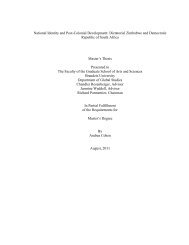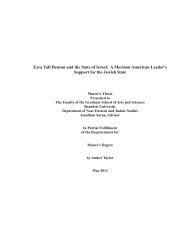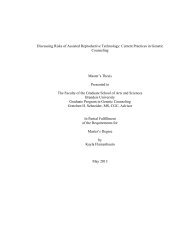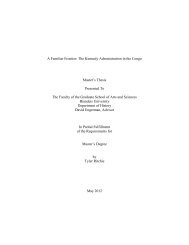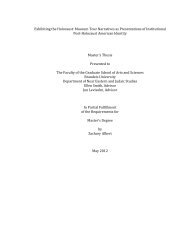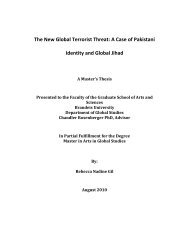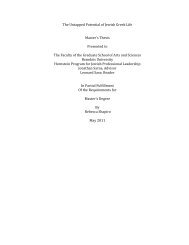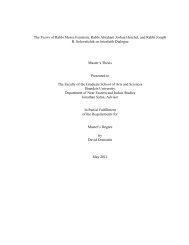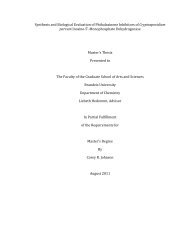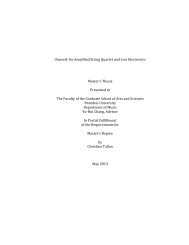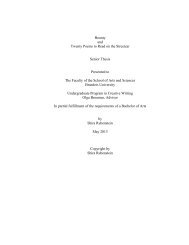- Page 4 and 5:
Pictures of PeopleAlice Neel’sAme
- Page 6:
NOTE TO EREADERSAs electronic repro
- Page 9 and 10:
viii / ContentsPART II: NEEL’S SO
- Page 11 and 12:
x / Illustrations in the Print Edit
- Page 13 and 14:
xii / Illustrations in the Print Ed
- Page 15 and 16:
xiv / Illustrations in the Print Ed
- Page 17 and 18:
xvi / Acknowledgmentstors Virginia
- Page 19 and 20:
xviii / Pictures of Peoplepression,
- Page 21 and 22:
xx / Pictures of Peopleof the bawdy
- Page 24:
Part IThe Subjects of the Artist
- Page 27 and 28:
4 / The Subjects of the Artistexpla
- Page 29 and 30:
6 / The Subjects of the Artistclass
- Page 31 and 32:
8 / The Subjects of the ArtistThe r
- Page 33 and 34:
10 / The Subjects of the ArtistBeca
- Page 35 and 36:
12 / The Subjects of the Artistrect
- Page 37 and 38:
14 / The Subjects of the ArtistIt i
- Page 39 and 40:
16 / The Subjects of the Artistarti
- Page 41 and 42:
18 / The Subjects of the Artist“A
- Page 43 and 44: 20 / The Subjects of the Artistand
- Page 45 and 46: 22 / The Subjects of the Artistvent
- Page 47 and 48: 24 / The Subjects of the Artistspee
- Page 49 and 50: 26 / The Subjects of the Artistpher
- Page 51 and 52: 28 / The Subjects of the Artistzone
- Page 53 and 54: 30 / The Subjects of the Artistself
- Page 55 and 56: 32 / The Subjects of the Artistnect
- Page 57 and 58: 34 / The Subjects of the Artistcial
- Page 59 and 60: 36 / The Subjects of the Artistphia
- Page 61 and 62: 38 / The Subjects of the ArtistHowe
- Page 63 and 64: 40 / The Subjects of the Artistmist
- Page 66: Part IINeel’s Social Realist Art:
- Page 69 and 70: 46 / Neel’s Social Realist Artmor
- Page 71 and 72: 48 / Neel’s Social Realist Artalt
- Page 73 and 74: 50 / Neel’s Social Realist Artwas
- Page 75 and 76: 52 / Neel’s Social Realist Artdoc
- Page 77 and 78: 54 / Neel’s Social Realist Artten
- Page 79 and 80: 56 / Neel’s Social Realist Arting
- Page 81 and 82: 58 / Neel’s Social Realist Artmea
- Page 83 and 84: 60 / Neel’s Social Realist ArtJoe
- Page 85 and 86: 62 / Neel’s Social Realist Artwou
- Page 87 and 88: 64 / Neel’s Social Realist Artpai
- Page 89 and 90: 66 / Neel’s Social Realist Artsix
- Page 91 and 92: 68 / Neel’s Social Realist ArtDur
- Page 93: 70 / Neel’s Social Realist Artmir
- Page 97 and 98: 74 / Neel’s Social Realist ArtPer
- Page 99 and 100: 76 / Neel’s Social Realist Arthad
- Page 101 and 102: 78 / Neel’s Social Realist Artsis
- Page 103 and 104: 80 / Neel’s Social Realist Artpai
- Page 105 and 106: 82 / Neel’s Social Realist Artint
- Page 107 and 108: 84 / Neel’s Social Realist ArtFul
- Page 109 and 110: 86 / Neel’s Social Realist ArtDre
- Page 111 and 112: 88 / Neel’s Social Realist ArtIn
- Page 113 and 114: 6El Barrio:Portrait of Spanish Harl
- Page 115 and 116: 92 / Neel’s Social Realist Arttha
- Page 117 and 118: 94 / Neel’s Social Realist ArtSuc
- Page 119 and 120: 96 / Neel’s Social Realist Artwhe
- Page 121 and 122: 98 / Neel’s Social Realist Artcal
- Page 123 and 124: 100 / Neel’s Social Realist Artte
- Page 125 and 126: 102 / Neel’s Social Realist Artar
- Page 127 and 128: 104 / Neel’s Social Realist Artun
- Page 129 and 130: 106 / Neel’s Social Realist ArtPu
- Page 131 and 132: 108 / Neel’s Social Realist ArtWh
- Page 134 and 135: 7A Gallery of Players:Artist-Critic
- Page 136 and 137: A Gallery of Players / 113be lost a
- Page 138 and 139: A Gallery of Players / 115Campbell
- Page 140 and 141: A Gallery of Players / 117on Neel
- Page 142 and 143: A Gallery of Players / 119sidered b
- Page 144 and 145:
A Gallery of Players / 121is a disr
- Page 146 and 147:
A Gallery of Players / 123Neel’s
- Page 148 and 149:
A Gallery of Players / 125“Batman
- Page 150 and 151:
8The Women’s Wing:Neel and Femini
- Page 152 and 153:
The Women’s Wing / 129Neel’s ƒ
- Page 154 and 155:
The Women’s Wing / 131just and bi
- Page 156 and 157:
The Women’s Wing / 133lenced the
- Page 158 and 159:
The Women’s Wing / 135holding han
- Page 160 and 161:
The Women’s Wing / 137historical
- Page 162 and 163:
The Women’s Wing / 139“Three Am
- Page 164 and 165:
The Women’s Wing / 141There exist
- Page 166:
The Women’s Wing / 143Looking bac
- Page 170 and 171:
9Truth Unveiled:The Portrait NudeIn
- Page 172 and 173:
Truth Unveiled / 149school, where s
- Page 174 and 175:
Truth Unveiled / 151Nadya’s „es
- Page 176 and 177:
Truth Unveiled / 153Nadya’s addic
- Page 178 and 179:
Truth Unveiled / 155hand, Gold’s
- Page 180 and 181:
Truth Unveiled / 157others were doi
- Page 182 and 183:
Truth Unveiled / 159are played woul
- Page 184 and 185:
in time—two ladies sitting in umb
- Page 186 and 187:
Shifting Constellations / 163which
- Page 188 and 189:
Shifting Constellations / 165was a
- Page 190 and 191:
Shifting Constellations / 167liefs,
- Page 192 and 193:
Shifting Constellations / 169origin
- Page 194 and 195:
Shifting Constellations / 171ing ch
- Page 196 and 197:
Shifting Constellations / 173by the
- Page 198 and 199:
Shifting Constellations / 175void b
- Page 200 and 201:
NOTESIntroduction. The Portrait Gal
- Page 202 and 203:
Notes / 1793. Emile de Antonio and
- Page 204 and 205:
Notes / 18143. Gombrich, “The Exp
- Page 206 and 207:
Notes / 183that the book is ƒnishe
- Page 208 and 209:
Notes / 185into a language of tempe
- Page 210 and 211:
Notes / 187only one repeated entry,
- Page 212 and 213:
Notes / 18974. J.L., “New Exhibit
- Page 214 and 215:
Notes / 191from the 1930s through t
- Page 216 and 217:
Notes / 193a man (who loves childre
- Page 218 and 219:
Notes / 195designed to jolt the rea
- Page 220 and 221:
Notes / 197alist art, permeated by
- Page 222 and 223:
Notes / 19929. Morris Dickstein, Ga
- Page 224 and 225:
Notes / 201portrait of the boyish W
- Page 226 and 227:
Notes / 203world gossip.” David B
- Page 228 and 229:
Notes / 205which had refused to par
- Page 230 and 231:
Notes / 207Eating and Identity (198
- Page 232 and 233:
Notes / 20925. Georges Bataille, Th
- Page 234 and 235:
Notes / 21110. William S. Rubin, Da
- Page 236 and 237:
BIBLIOGRAPHYI. Archival Sources and
- Page 238 and 239:
Sources Focused on Alice Neel / 215
- Page 240 and 241:
Sources Focused on Alice Neel / 217
- Page 242 and 243:
General Sources: Books / 219Storr,
- Page 244 and 245:
General Sources: Books / 221Chodoro
- Page 246 and 247:
General Sources: Books / 223——
- Page 248 and 249:
General Sources: Books / 225Leja, M
- Page 250 and 251:
General Sources: Books / 227Rich, A
- Page 252 and 253:
General Sources: Periodicals / 229W
- Page 254 and 255:
General Sources: Periodicals / 231M
- Page 256:
PHOTOGRAPHY CREDITSeeva-inkeri: ƒg




